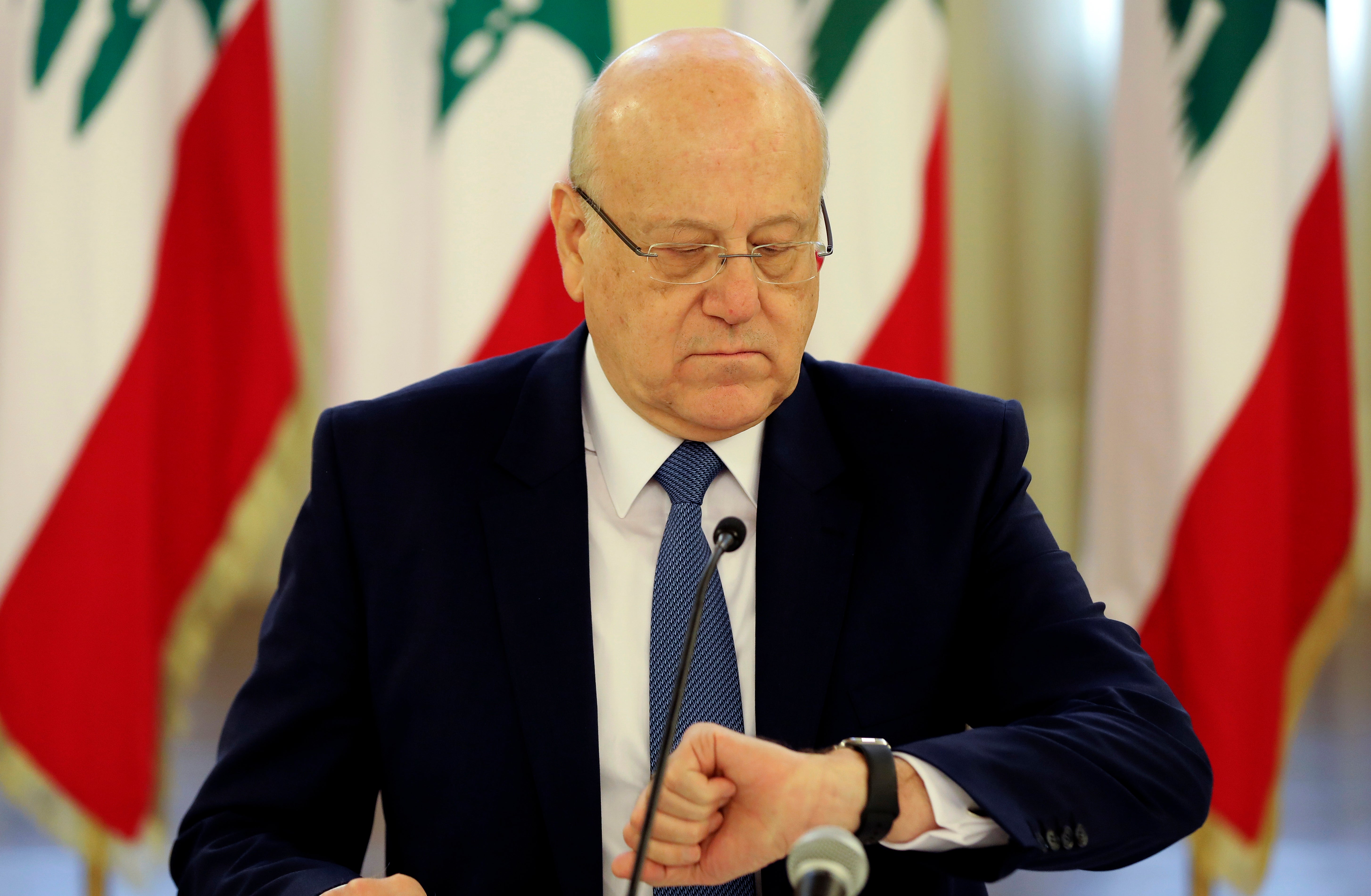Lebanese premier expects draft deal with IMF within weeks
Lebanon’s prime minister says talks with the International Monetary Fund are inching closer to a “final formula” for a draft deal before the end of February

Your support helps us to tell the story
From reproductive rights to climate change to Big Tech, The Independent is on the ground when the story is developing. Whether it's investigating the financials of Elon Musk's pro-Trump PAC or producing our latest documentary, 'The A Word', which shines a light on the American women fighting for reproductive rights, we know how important it is to parse out the facts from the messaging.
At such a critical moment in US history, we need reporters on the ground. Your donation allows us to keep sending journalists to speak to both sides of the story.
The Independent is trusted by Americans across the entire political spectrum. And unlike many other quality news outlets, we choose not to lock Americans out of our reporting and analysis with paywalls. We believe quality journalism should be available to everyone, paid for by those who can afford it.
Your support makes all the difference.Lebanon’s prime minister said Tuesday that his government's talks with the International Monetary Fund are inching closer to a “final formula” for a draft on an agreement before the end of February.
Najib Mikati said the Cabinet was doing “its homework” ahead of talks with the IMF in mid-January. An IMF delegation will visit Lebanon again in late January or early February to lay out “the final formula for the agreement with them and then we will announce to the Lebanese where we stand,” Mikati said.
An agreement with the IMF will have to be approved by the government. Deep disagreements had divided the Lebanese delegation during last year’s negotiations with the IMF, with the government on one side and the central bank and local lenders on the other.
Lebanon is in the throes of an economic crisis described as one of the worst in the world in the last 150 years. International financial institutions call it a deliberate depression, blaming Lebanon's political elite, in power for decades, of mismanaging the country’s resources
Mitaki spoke hours after President Michel Aoun called for an end to the 11-week government deadlock that has undermined state institutions.
The Lebanese government has not been able to meet since mid-October, after the militant Hezbollah group and its allies demanded the removal of the lead judge investigating the massive explosion at the Beirut port last year.
Hezbollah accuses the judge of bias and its allies in government refused to attend Cabinet meetings until the government finds a way to remove him.
Mikati told reporters that he understands the concerns of some Lebanese regarding the port investigation but that there are “constitutional and legal frameworks” in place for dealing with it.
“The judiciary should be distanced from politics,” he said.
Mikati also said that Lebanon's Central Bank governor Riad Salameh, who is being investigated in Switzerland and France for potential money laundering and embezzlement, would stay in office at the time being.
“During wars you don’t change officers,” said Mikati, who took office in September. He has often described the efforts to resolve Lebanon’s economic crisis — the worst in its modern history — as a war.
Salameh, 71, once praised as the guardian of Lebanon’s financial stability, has drawn scrutiny since the small country’s economic meltdown began two years ago.